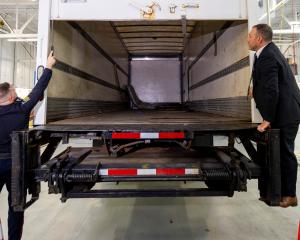Two British metal detectorists have been found guilty of hiding a hoard they had discovered of more than 300 Anglo-Saxon gold coins, ingots and jewellery, some dating back 1100 years.
The find is worth about £3 million pounds ($NZ6 million).
George Powell (38) and Layton Davies (51) made the find, which included some coins believed to date from the reign of King Alfred the Great and described as being of "immense historical value", while scanning farmland in Leominster, central England.
British law requires that discovery of "treasure", which includes metal items over 300 years old, must be declared to the landowner and reported to the local coroner.
However, the men kept the find to themselves and began to release the coins to the market through two specialist dealers. Police said they were still hunting for other coins.
"The coins Davies and Powell found were more than 1100 years old and bore the inscriptions of Aelfred and Ceolwulf from the Saxon-Viking period," said Lesley Milner of the Crown Prosecution Service.
"This find had immense historical value and should have been disclosed to the relevant authorities. But Davies and Powell actively hid their haul for their own selfish gain."
Alfred ruled the southern area of Wessex from 871 until 899, while Ceowulf II was king of Mercia, north of Wessex, from 874-9.
Milner said the treasure would have been worth at least £2.9 million.
The two men were both found guilty of theft and, along with the two dealers, conspiracy to convert or conceal criminal property. They will be sentenced at Worcester Crown Court on Friday.












